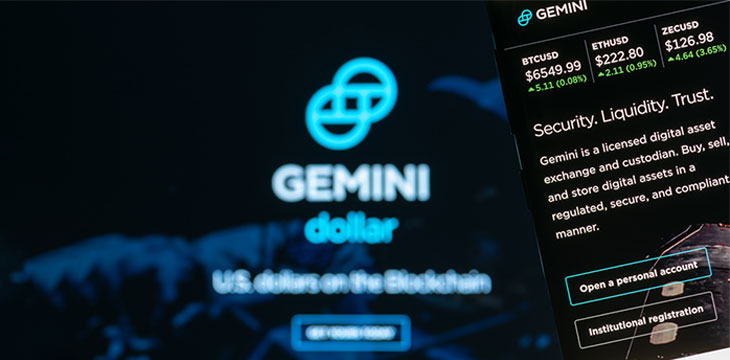
Gemini vs. DCG: Unraveling the Legal Knot in the Crypto Sphere
The decentralized world of cryptocurrencies is no stranger to legal disputes, and a recent high-profile lawsuit between Gemini and Digital Currency Group (DCG) has set tongues wagging. This complex affair, interwoven with various allegations and large sums of money, has sparked a flurry of speculation and concern among crypto enthusiasts and market players alike.
A Battle of Titans: Gemini Sues DCG
Late last week, Gemini – the renowned cryptocurrency exchange founded by the Winklevoss twins – initiated legal proceedings against DCG, one of the largest corporations in the cryptocurrency industry, and its CEO, Barry Silbert.
The catalyst for this lawsuit was the collapse of a DCG subsidiary named Genesis, which had severe repercussions for a Gemini product known as Gemini Earn. Following the implosion of FTX, Genesis folded, subsequently dragging Gemini Earn down with it. Gemini Earn was a product that enabled retail investors to earn yields on their crypto by lending them to institutional investors via Genesis.
Gemini and Genesis initially embarked on a cooperative path to mitigate the fallout. But it quickly became evident that Genesis lacked the financial capacity to settle its staggering $1.2 billion debt to Gemini, even with DCG’s financial backing.
The Rising Tide of Accusations
This saga took an even more dramatic turn with Cameron Winklevoss, Gemini’s co-founder, publicly calling out DCG and Barry Silbert. Through a series of posts and public letters, Cameron urged DCG to settle its debts and called for Silbert’s resignation.
The situation escalated further when Gemini made good on its threat to sue DCG and Barry Silbert, alleging fraudulent activity. Cameron Winklevoss took to Twitter to elaborate on the accusations, raising several serious concerns.
The allegations primarily revolve around Silbert’s role in encouraging Gemini Earn to continue operations, despite his alleged knowledge of Genesis’ insolvency. Gemini claims that Silbert, along with DCG and Genesis, misrepresented a $1.1 billion promissory note – a written commitment to pay a stated sum – from DCG to Genesis as an asset. Such a promissory note, Gemini alleges, was erroneously counted as an asset on Genesis’ balance sheet – a dubious accounting practice, to say the least.
The crux of the lawsuit is that Silbert, fully aware of Genesis’s precarious financial state, persuaded Gemini to keep Gemini Earn in operation, leading Gemini to believe that all was well.
Implications for the Crypto Industry
This lawsuit has sent ripples through the cryptocurrency industry, primarily due to DCG’s substantial investments in numerous major crypto firms and projects. If DCG is compelled to liquidate some or all of its stake to cover Genesis’ losses, it could have a significant impact on the broader crypto sector.
Furthermore, another point of concern is the involvement of Grayscale, a key DCG subsidiary. Grayscale is the issuer of the Grayscale Bitcoin Trust (GBTC), a pseudo-bitcoin ETF holding nearly $20 billion worth of Bitcoin. If Grayscale or GBTC get entangled in this dispute, the ramifications could extend to Bitcoin itself, causing both direct and indirect damage.
The Road Ahead
In light of these developments, the Gemini vs. DCG lawsuit is shaping up to be a watershed moment in the crypto industry. The fallout from this dispute could provide key insights into the interplay between legal systems and the decentralized world of cryptocurrencies.
As we await more details on this legal tussle, the wider crypto community watches with bated breath, knowing that the outcome could have far-reaching implications for the landscape of digital assets.